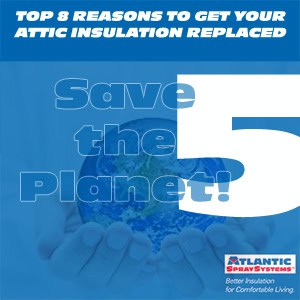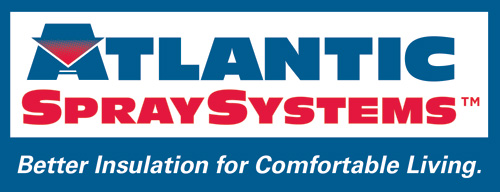Top 8 Reasons to Replace Your Old Attic Insulation: Save the Planet!
DID YOU KNOW: The Anatomy of an Encapsulated Crawlspace
August 9, 2024Top 8 Reasons to Replace Your Old Attic Insulation: Ease the Load
November 1, 2024Top 8 Reasons to Replace Your Old Attic Insulation: Reduce Your Carbon Footprint to Save the Planet!

How Replacing Your Attic Insulation Can Help Save the Planet
In the quest to mitigate climate change, individuals often overlook the impact their homes can have on the environment. One surprisingly effective way to contribute to environmental sustainability is by replacing your attic insulation. This relatively simple home improvement can significantly reduce energy consumption, lower carbon emissions, and ultimately help save the planet.
Energy Efficiency and Reduced Carbon Footprint
Attic insulation plays a crucial role in maintaining a stable indoor temperature by acting as a barrier to heat flow. Inadequate or old insulation allows heat to escape during the winter and enter during the summer, forcing heating and cooling systems to work harder. By upgrading your attic insulation, you can significantly improve your home’s energy efficiency. According to the U.S. Department of Energy, homeowners can save up to 20% on heating and cooling costs simply by insulating their attics properly.
Lowering Greenhouse Gas Emissions
Reducing energy consumption directly correlates with a decrease in greenhouse gas emissions. In many regions, the electricity used to power heating and cooling systems is generated from fossil fuels, which release carbon dioxide (CO2) and other greenhouse gases into the atmosphere. By minimizing the need for heating and cooling through effective attic insulation, you decrease the demand for electricity, thereby reducing your household’s carbon footprint.
Sustainable Materials for Insulation
Modern insulation materials offer eco-friendly options that further enhance the environmental benefits. Traditional fiberglass insulation, while effective, can be replaced with sustainable alternatives such as cellulose, made from recycled paper, or wool insulation, which is biodegradable and renewable. These materials not only provide excellent thermal performance but also reduce the environmental impact associated with manufacturing and disposal.
Enhanced Home Comfort and Longevity
Beyond environmental benefits, replacing your attic insulation improves your home’s overall comfort. Proper insulation helps maintain a consistent temperature, reducing drafts and cold spots during winter and keeping your home cooler in the summer. This not only enhances your living experience but also prolongs the lifespan of your HVAC system by reducing its workload, leading to fewer repairs and replacements.
Contribution to a Larger Movement
While individual actions might seem small in the grand scheme of climate change, collective efforts can lead to significant impact. By replacing your attic insulation, you join a growing movement of environmentally conscious homeowners who are taking steps to reduce energy consumption and promote sustainability. These actions, when multiplied across communities and regions, can lead to substantial reductions in overall energy demand and greenhouse gas emissions.
Conclusion
Replacing your attic insulation is a practical and impactful way to contribute to environmental sustainability. By improving energy efficiency, reducing greenhouse gas emissions, and opting for sustainable materials, you can make a meaningful difference in the fight against climate change. This home improvement project not only benefits the planet but also enhances your comfort and reduces energy costs, creating a win-win situation for homeowners and the environment alike.
We would love to give you a free, no hassle consultation on your existing insulation to determine if replacement is a necessary and cost impactful step to helping not only keeping you comfortable, but also the other 7 top reasons we will be presenting in this attic insulations series. Fill out this form, or Call us to set up your visit today!



